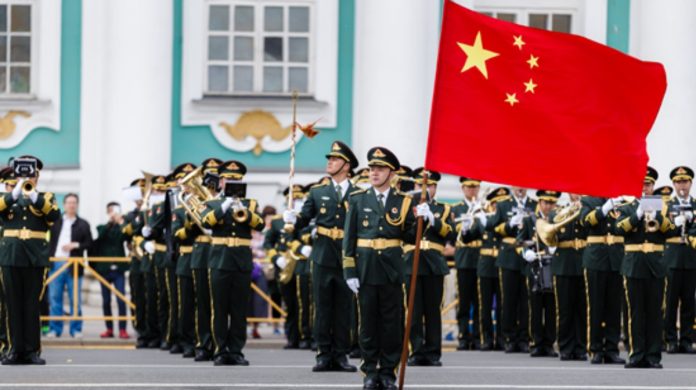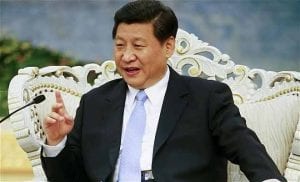
Is China socialist or capitalist? Neither. It is 'Chinist’
As China wakes up to celebrate 100 years since the birth this day of its Communist Party (CPC), the rest of the world continues to debate how to characterise the country’s socio-political system – is it capitalism in the garb of communism or vice versa, or a mix of socialism and capitalism or something altogether unique?

As China wakes up to celebrate 100 years since the birth this day of its Communist Party (CPC), the rest of the world continues to debate how to characterise the country’s socio-political system – is it capitalism in the garb of communism or vice versa, or a mix of socialism and capitalism or something altogether unique? Or, “Socialist market economy with Chinese characteristics?”, as the Chinese like to call their enigmatic system.
Reams have been written, researched and doctoral theses churned out on what China is – from a peasant-led revolution that brought the Communist Party of China to power in 1949, to the abrupt shift after the death of its helmsman, Chairman Mao Tse Tung, in 1976. Until Mao, there was little confusion over China’s ideological moorings – it was classical Communist rule inspired by the ideological big daddies Karl Marx and Vladimir Lenin.
Also read: To keep China’s rise peaceful, India must rise too
Mao’s successor Deng Xiaoping, who from earlier days within the CPC had shown liberal leanings, dramatically altered China’s trajectory by instituting widespread economic reforms in 1978.
Until 1989, it seemed like Deng had set China on the course to veering away from classical Communism. Hungarian economist Janos Kornai, who had extensively studied the Chinese system, termed it a “Capitalist dictatorship” and that the Communist party had acquired a nationalist or Confucian character.
Deng also introduced reforms within the realm of governance. For instance, specific term limits were fixed for the office of the President and the party’s first secretary so that there would be no scope for a single individual to dominate the CPC. He decentralised village and town-level councils with a view to democratising grassroots governance.
On the economic front, space was created for the emergence of a small private sector while the management of state-owned enterprises was altered to give workers the right to vote individuals into management positions.
A 2015 paper on the subject by American philosopher David Schweickart states that the “language of ‘democratic management’ is widely used in China.” He quotes the Chinese Constitution as saying “state-owned enterprises practice democratic management through congresses of workers,” which are empowered to “decide matters concerning the well-being and benefits of the workers,” and even to “elect the factory director or manager according to the arrangement of the competent governmental department.”
Seeing the speed of reforms, some even expected China to eventually turn into a version of liberal democracy, especially in the weeks leading up to the Tiananmen massacre. Premier Zhao Ziyang was an open votary of the pro-reform moves and was reported to have the support of Deng. The growing student movement for democracy received tacit support from a section of the Communist leadership led by Zhao.
A dramatic twist turned the narrative on its head. A couple of days before the crackdown on the pro-democracy movement on June 4, 1989, Deng at a meeting of the politburo did an about-turn opting to put down the student protests by force.
Also read: China’s paranoia, aggression stem from its troubled past
A handful of China’s top leaders led by Deng in the Politburo Standing Committee confabulated on how to respond to the movement for democratic reforms. They expressed their fears over the possible consequences to the Communist state if the movement was allowed to continue.
Deng had the final say. Charging the United States with fomenting the agitation, Deng said “When the West stirs up turmoil in other countries, in fact, it is playing power politics — hegemonism — and is only trying to control those other countries, to pull into its power sphere countries that were previously beyond its control.”
Fearing civil war and a collapse of the Communist Party if the students’ movement was allowed to continue Deng said, “Two conditions are indispensable for our development goals: a stable environment at home and a peaceful environment abroad. We don’t care what others say about us.”
Two days later, troops crushed the movement resulting in the deaths of around 2600 students – once and for all ending any talk of political reform. But, as Deng made it clear at the meeting, economic reforms would continue unhindered.
Zhao who was not present at the meeting as he was travelling abroad and was thus unable to argue in favour of political reforms. By the time he returned, the damage was already done to his cause, and he himself was interned for life.
Also read: Chinese checkers: Of conspiracy theories and economic realities
Political reforms had been stalled, followed by a period of reassessment in the way China was going. Putting an end to the confusion, in 1992, Deng undertook his famous Southern Tour where he reiterated that economic reforms would continue with even more vigour. It was during that tour that Deng laid the foundation that was to eventually turn Shanghai and Shenzen into top-class corporate-industrial cities, that had the world’s capitalists drooling.
Until Xi Jinping took over as president in 2013, economic reforms received the maximum push while minimal political space was created for democratic praxis. For example, Hong Kong was allowed to continue with a liberal electoral democracy under the “One Country, Two Systems” policy. Relations with liberal democratic Taiwan too, otherwise considered by China as a renegade state, were on an even keel.
Xi’s advent brought about another turn to Chinese politics, a possibility that Deng had tried to prevent. Five years after first taking over, Xi’s election in 2018 by the CPC as lifetime president of the country effectively placed him above the Communist party. China has thus moved to a newer version of authoritarianism, with some comparing his position to that of Mao in an earlier era.

According to analysts, China under Xi is exhibiting traits of nationalism in the garb of Communism. The country’s belligerence in Asia towards neighbours like India, Japan, Vietnam and others in south-east Asia is being dictated by nationalist tendencies.
Xi’s China has upended the comparatively cordial neighbourliness that was seen under Deng and Mao. Of course, a couple of notable exceptions to this was China’s involvement in the 1950-53 Korean war and the 1962 war with India.
The rise of nationalism in China has also meant the “othering” of Muslim minorities including the Uyghur Muslims in Xinjiang province where reports say thousands have been interned in vast detention camps. Other minorities, including Christians, too, are occasionally targeted, say reports.
In what resembles a kind of imperialism, often associated with the West, China under Xi has also aggressively pushed to dominate other countries, at least 60 of them, under the Belt and Road Initiative (BRI). Under this, in the guise of investment, China is perceived to dominate struggling and weaker economies in Asia, including in the Indian neighbourhood, besides nations including South Africa and Sudan in Africa.
Whether it is socialist, capitalist or some other hybrid form of governance, one fact that none can doubt is the emergence of China, from a poor struggling economy in 1949 at the time of the revolution to a situation today where it stands only next to the world’s superpower, the United States.
What confounds analysts is the shape-shifting, amoeba-like manner in which China has moved through seven decades under the rule of the Communist Party – defying all boundaries of conventional political thought. No surprise that, gradually, a consensus seems to be evolving in favour of a new political coinage “Chinism” – that incorporates elements from all known ideologies in addition to the Chinese home-grown varieties.


